The Nature Positive Solutions initiative in Akole addresses biodiversity loss, land degradation and water scarcity by helping local farmers to make a more efficient use of their natural resources.
Interventions in this area range from agriculture-focused activities—such as plant breeding, fertility management, and fodder management—to water conservation practices, including the promotion of diversion-based irrigation and gabion structures. They also incorporate circular bioeconomy concepts, like the production of biofertilizers, biogas, and biochar. Central to all these efforts is the active participation of local communities, who engage in participatory decision-making and citizen science
The goal is to give farmers in these areas the tools to collaborate and make themselves resilient in the face of climate change.
Contact: Alok K. Sikka, Country Representative and Principal Researcher International Water Management Institute (IWMI), New Delhi a.sikka(at)cgiar.org
Operating Location: Akole cluster, Ahmednagar district
Traditional Name: अकोले
Area of Operation: 10 villages distributed on 8,000 hectares
Coordinates: 19.6957° N 73.5629° E
Communities: Kalsubai sub cluster consist of six villages namely Bari, Jahagirdarwadi, Pendshet, Chichondi, Murshet and Panjare and Igatpuri sub cluster consist of four villages namely Adharwad, Khed, Wasali and Indore.
Description of the Area: Akole cluster consists of 10 villages spreading across the administrative boundary of the Ahmednagar and Nasik districts of Maharashtra. There are 2 sub clusters: Kalsubai sub cluster consist of six villages namely Bari, Jahagirdarwadi, Pendshet, Chichondi, Murshet and Panjare and Igatpuri sub cluster consist of four villages namely Adharwad, Khed, Wasali and Indore.






By collaborating with local farmers’ producer organizations (FPOs) and women’s self-help groups, and leveraging ongoing activities carried out by their partners, scientists from CGIAR aim to address multifaceted environmental and production challenges. Akole is mostly inhabited by commercial farmers who cultivate cash crops to sell. A key focus in the area is water management, a challenge all farmers here face due to uncertain precipitation. Water issues are addressed from multiple perspectives, including improving soil health to increase its retention capacity, introducing more resilient crop varieties, adopting better land management strategies that incorporate trees, and ensuring more equitable access to resources.
By promoting regenerative agricultural practices and eco-friendly fuels, the initiative aims to reduce air pollution caused by burning crop residues and timber. Implementing circular economy practices and alternative soil fertility management techniques can further enhance air quality.
The initiative focuses on enhancing water conservation and quality through sustainable irrigation techniques and watershed management. In Akole, groundwater is depleting rapidly, constituting a challenge for farmers who heavily rely on aquifers or rain for irrigation. By improving water management and rainwater collection practices, the initiative aims to ensure the long-term availability and purity of water resources.
Improving soil health is a key goal, that can be achieved through practices like crop rotation and organic farming that prevent soil degradation. The challenge here is combating soil erosion and nutrient depletion caused by intensive, market driven, farming. The initiative addresses this by promoting soil conservation techniques, tree-based land restoration and the use of biofertilizers and biochar to restore soil fertility.
The initiative aims to safeguard and boost biodiversity by incorporating a variety of crop types – especially native tree species, neglected and underutilized species (NUS), local millet and pulses varieties – and safeguarding natural habitats. In Akole, a significant hurdle lies in biodiversity decline caused by monoculture and deforestation. To address this challenge, the initiative promotes the adoption of agroforestry and diverse cropping systems among farmers.
Promoting fair access to resources, training and education for farmers and communities is paramount. One of the key goals of the initiative is to address socio-economic disparities and ensure that marginalized groups, such as smallholder and women farmers, have equitable access to economic opportunities and nutritious diets, and can actively participate in decision making processes in their communities.
The initiative aims to reduce the carbon footprint of agriculture by adopting practices that enhance carbon sequestration, such as agroforestry and manure management. By planting trees and transitioning from conventional, monoculture-based agriculture to biodiversity-based farming practices and conservation of native species; the initiative aims to support Akole’s farmers in mitigating climate change.
The CGIAR Initiative on Nature-Positive Solutions carries out its activities in partnership with numerous international and local organizations in order to leverage collaboration and the sharing of knowledge and skills and achieve the maximum possible impact. In each region several CG centers take part in the activities by contributing their expertise for the success of the entire initiative.
The project consists of interventions across five impact areas. Each intervention is on a path of continuous improvement, generating impacts across six dimensions: air, water, soil, biodiversity, equity, and climate. Collectively, these data points can be represented as an EBF ImpacTracker.
TECHNICAL NOTE
This initiative is ongoing. Endline benefit calculations are understood as “potential impacts” and not for use as a final report. Click on the icons to learn more about each impact area’s contributions or scroll down for additional details. Total scores are tabulated from the output of each ecological benefit.
Primary positive impacts generated by the Nature-Positive Solutions Initiative of the CGIAR on poverty reduction, food security, gender and social inclusion, climate mitigation and adaptation and environmental health.
Location: Akole cluster, Ahmednagar district
Duration: 2022 – 2026
Interventions: Interventions to improve nutrition and food security focus on crop diversification on the fields-and thus on the tables-of Akole farmers. In parallel, work is being done to improve water conservation and use practices so that it is always available to all.
Location: Akole cluster, Ahmednagar district
Duration: 2022 – 2026
Interventions: Poverty reduction and job creation interventions in Akole focus on biodiversity and land management, and circular economy. By developing value chains for local varieties and nus, and improving farming practices, economic opportunities are created for youth and women. With circular bioeconomy models, farmers create value-added products from waste, which they can then sell back to the market.
Location: Akole cluster, Ahmednagar district
Duration: 2022 – 2026
Interventions: Gender equality and youth involvement is ensured by training activities targeting vulnerable groups, both in community seed banks and schools. The “train the trainer” approach ensures that the impact reverberates beyond the small number of people who can attend a course.
Location: Akole cluster, Ahmednagar district
Duration: 2022 – 2026
Interventions: In Akole adaptation and mitigation of the effects of climate change are embodied in three macro activities: crop diversification-including by leveraging participatory plant breeding activities-conservation and reuse of rainwater for irrigation, and land regeneration through erosion reduction interventions and tree planting.
Location: Akole cluster, Ahmednagar district
Duration: 2022 – 2026
Interventions: The health of ecosystems is ensured by the spread of sustainable agricultural practices – which decrease or cancel the use of chemical inputs – and the restoration of ecosystems through the distribution of native trees for reforestation.
About
The Nature-Positive Solutions platform is produced by The Lexicon with support from CGIAR, the Alliance of Bioversity International and CIAT, IWMI, IFPRI and CIP. Nature-Positive Solutions balance the needs of people and the planet, ensuring long-term ecological benefits, food security and livelihoods.
Team
Lexicon of Impacts is based on the Ecological Benefits Framework (EBF). This new paradigm provides a foundational architecture to radically transform global carbon, biodiversity, and ecological benefits markets. Coordinating financial institutions, UN agencies, NGOs, companies, and catalytic capital will bring attention to—and help create—a shared pathway for accelerated solutions, providing economic support for the people and projects that need it most.
This website was built by The Lexicon™, a 501(c)(3) tax-exempt nonprofit organization headquartered in Petaluma, CA.
Check out our Privacy Policy, Cookie Policy, and Terms of Use.
© 2024 – Lexicon of Impacts™